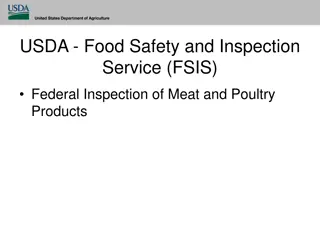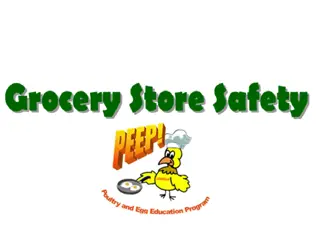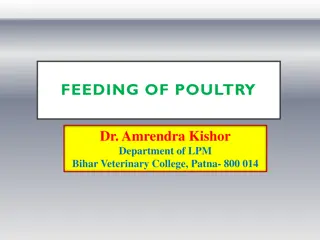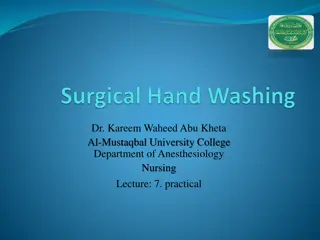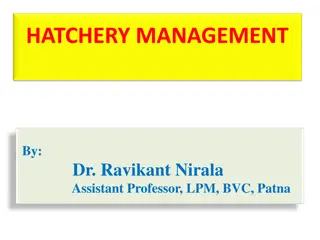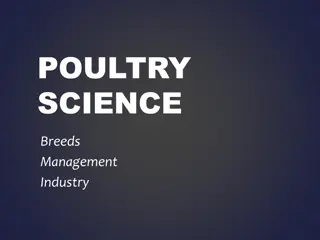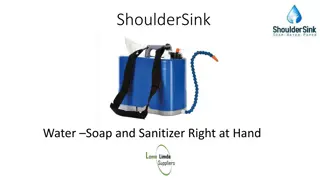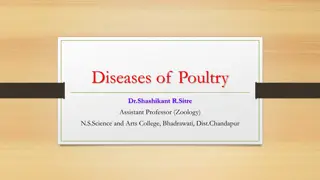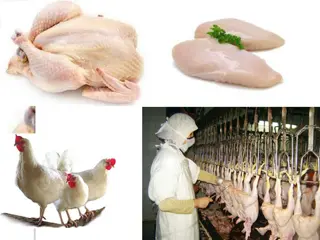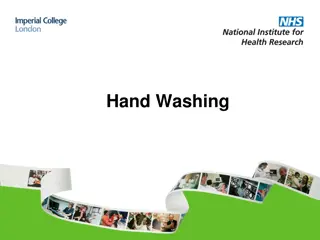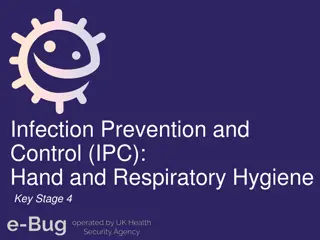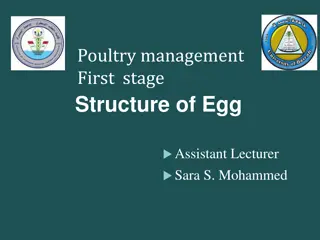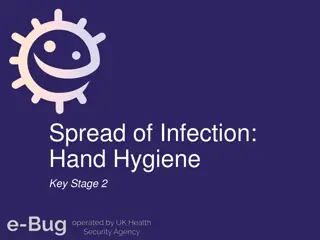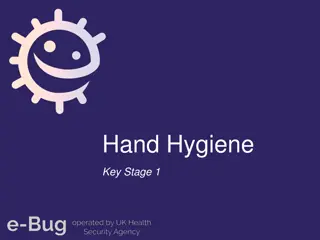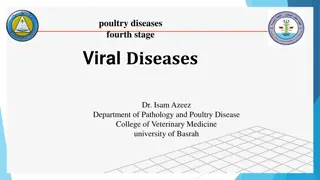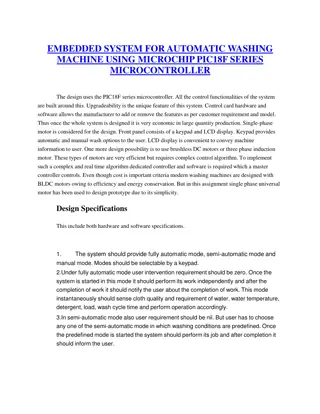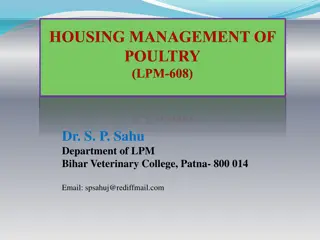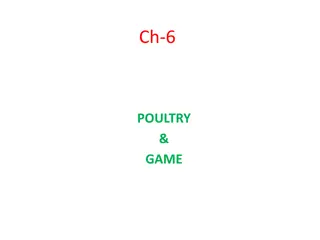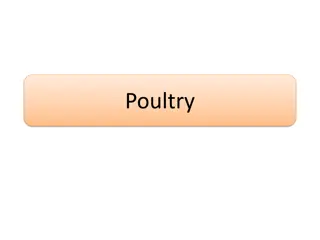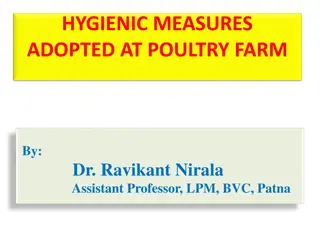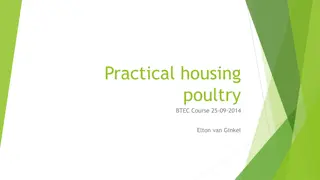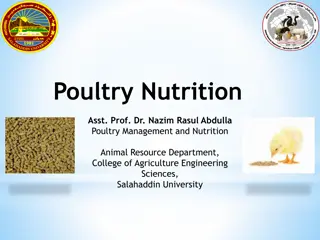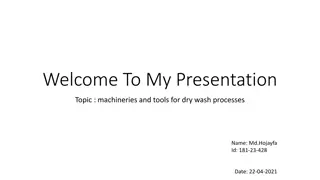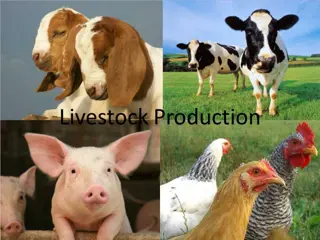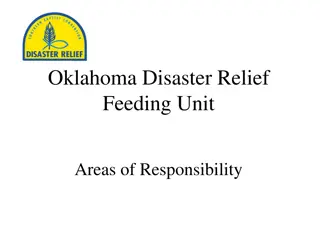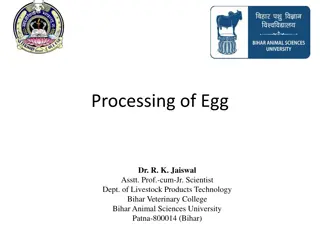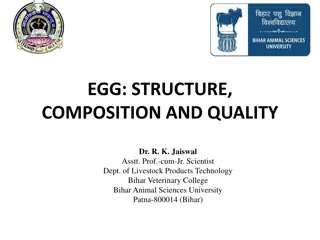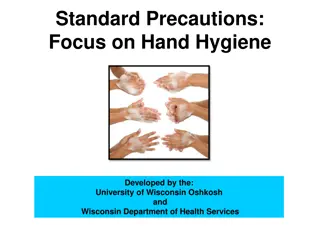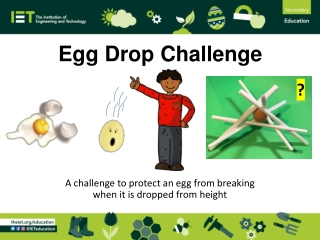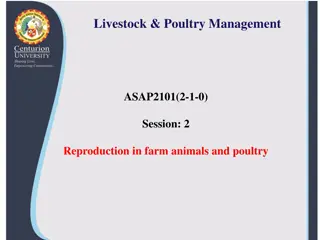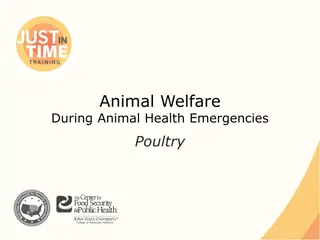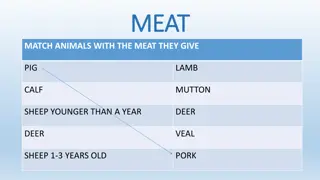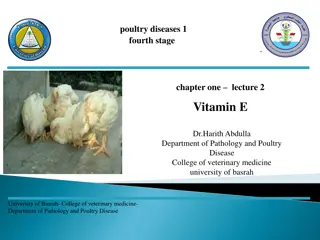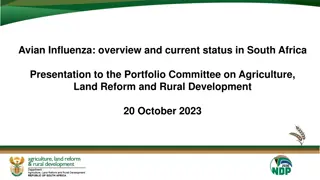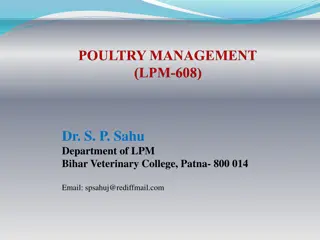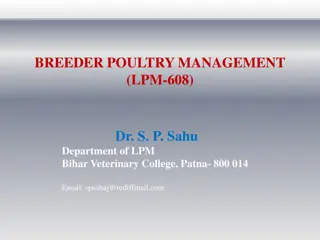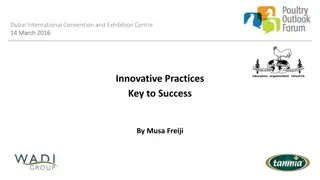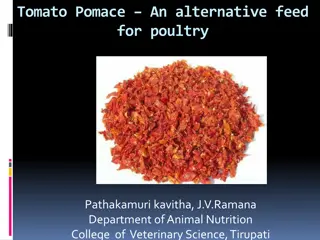Importance of Hand Washing in Poultry and Egg Safety
Hand washing plays a crucial role in maintaining poultry and egg safety by preventing harmful bacteria like Salmonella and Campylobacter from spreading. Proper hand washing before and after handling food products, cracking eggs, using the bathroom, touching pets, and more is essential to prevent foodborne illnesses. The major steps to wash hands effectively include wetting hands, applying soap, scrubbing thoroughly, rinsing under running water for at least 20 seconds, and drying with a clean towel.
Uploaded on Oct 06, 2024 | 0 Views
Download Presentation

Please find below an Image/Link to download the presentation.
The content on the website is provided AS IS for your information and personal use only. It may not be sold, licensed, or shared on other websites without obtaining consent from the author. Download presentation by click this link. If you encounter any issues during the download, it is possible that the publisher has removed the file from their server.
E N D
Presentation Transcript
Objectives 1. Describe how hand washing relates to poultry and egg safety. 2. Provide examples of when it is necessary to wash hands to prevent illness. 3. Identify major steps to properly wash hands.
Objective 1 Describe how hand washing relates to poultry and egg safety. Egg and Poultry safety begins with cleanliness. Washing hands often prevents harmful bacteria found on poultry and in eggs from spreading to other foods and surfaces Harmful bacteria can cause illness
Vocabulary Germs: A microorganism capable of spreading disease and illness. Salmonella: Bacteria that can be found in raw or undercooked eggs and poultry as well as other meats and dairy products. Salmonellosis: Illness caused by ingesting Salmonella bacteria in contaminated or under- cooked foods.
Vocabulary Foodborne Illness: illness or sickness that is transmitted to humans by food containing harmful bacteria or pathogens. Bacteria: Living single-celled organisms that can be found everywhere. They can be dangerous or beneficial and thrive best in places such as the mouth, nose, intestines, and room temperature foods.
Vocabulary Campylobacter: Campylobacter jejuni Bacteria that can be found on poultry, cattle and sheep and is most commonly associated with raw or undercooked poultry and unpasteurized milk. Campylobacteriosis: Foodborne illness caused by ingesting Campylobacter.
Objective 2 Provide examples of when it is necessary to wash hands to prevent illness. Before and after handling food or food products. Before and after cracking an egg
Objective 2 After using bathroom After touching hair or face After touching pets After coughing, sneezing, etc. After touching the trash can
Objective 3 Identify major steps to properly wash hands. 1. Wet hands under running water 2. Add Soap 3. Scrub palms and in-between fingers 4. Make sure to scrub under running water for at least 20 seconds 5. Dry hands with a clean paper towel
Summary Hand washing relates to poultry and egg safety. There are numerous examples when it is necessary to wash hands to prevent illness. There are major steps to take to properly wash hands.


